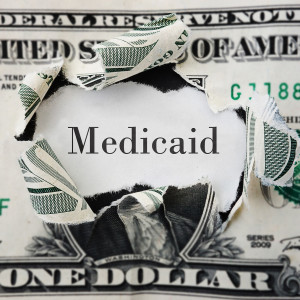With a stroke of the pen, North Carolina became the 40th state to expand Medicaid. “Holdout” states such as Mississippi are increasingly under pressure from pundits and policymakers to cave in and expand their own Medicaid programs.
According to a recent report in The New York Times, “no more than a few of Mississippi’s 100-plus hospitals are operating at a profit. Free care is costing them about $600 million a year.” However, this dire situation does not justify expanding a high-cost program that has delivered disappointingly few benefits to covered populations. Mississippi and other states deserve a more comprehensive approach that doesn’t break the bank.
Uncompensated care is a key contributor to hospitals’ (especially rural ones) financial struggles. But, Medicaid expansion is a costly “solution” to this persistent problem. Expanding the federal program to Mississippi would unlock approximately $1.6 billion in annual federal funds to reimburse providers for treating low-income patients. To access these dollars, the state would need to commit to spending about $150 million per year on expanded insurance. For less than half of that combined total, the federal and state government could directly reimburse Mississippi hospitals’ free care given to indigent residents. This solution is limited because it wouldn’t help low-income Mississippians access medications or routine physician visits.
A more comprehensive approach would be a means-tested, refundable tax credit of approximately $550 per month for individuals to go out and purchase the private healthcare plan of their choice. This would allow households to buy mid-tier “silver” health insurance plans (which typically cost $450-$500 monthly in Mississippi) and up to $1,000 left over per year for things like co-pays and deductibles. Compared to Medicaid expansion, this approach would save federal and state taxpayers $400 million annually. Alternatively, policymakers could pursue some combination of lower tax credit subsidies (say, $400 per month) and direct reimbursements to hospitals providing free care. These alternative policies would not only be better for taxpayers but also give low-income Mississippians a far better (private) insurance product. According to a 2021 analysis by the Medicaid and CHIP Payment and Access Commission, “physicians were significantly less likely to accept new patients insured by Medicaid (74.3 percent) than those with Medicare (87.8 percent) or private insurance (96.1 percent).”
Only about 63 percent of internal medicine doctors accept Medicaid, compared to 99 percent acceptance of private plans. This large discrepancy is not just because Medicaid reimbursement rates are lower. About a fifth of Medicaid claims are not paid in full, compared to just 5 percent of private claims.
Vox healthcare correspondent Dylan Scott explains, “The health care providers then must invest time and money to sort out any rejected or disputed claims. … And when you consider the disparity in the initial claims, with Medicaid already paying much less than Medicare or private insurance, these costs of incomplete payments eat up 16 percent of the value of a Medicaid visit for doctors, significantly more than the 7 percent for Medicare and 4 percent for private coverage.”
Empowering low-income residents to buy private health insurance is far better for providers and patients than expanding a deeply dysfunctional federal insurance plan. Allowing this alternative approach will be difficult and require detailed collaboration between federal and state policymakers. It’s well worth the effort to protect taxpayers and patients from a broken status quo. Affordable, private health insurance is a must for patients and providers across struggling states such as Mississippi.

